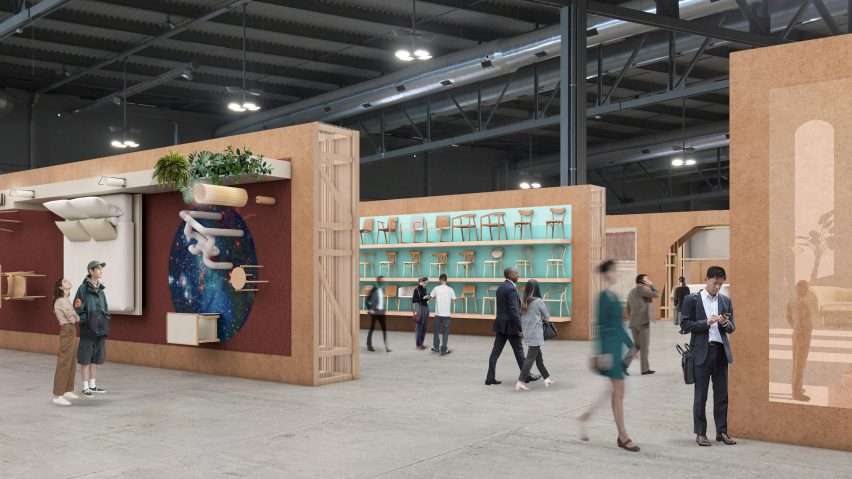
Stefano Boeri's plans for special Supersalone edition of Salone del Mobile will "demonstrate that Milan is alive"
In this exclusive interview, Salone del Mobile curator Stefano Boeri sets out his vision for this year's fair, which will be called Supersalone and will feature products displayed on walls instead of branded booths.
Boeri unveiled his radical plans this morning at a press conference that was live-streamed on Dezeen.
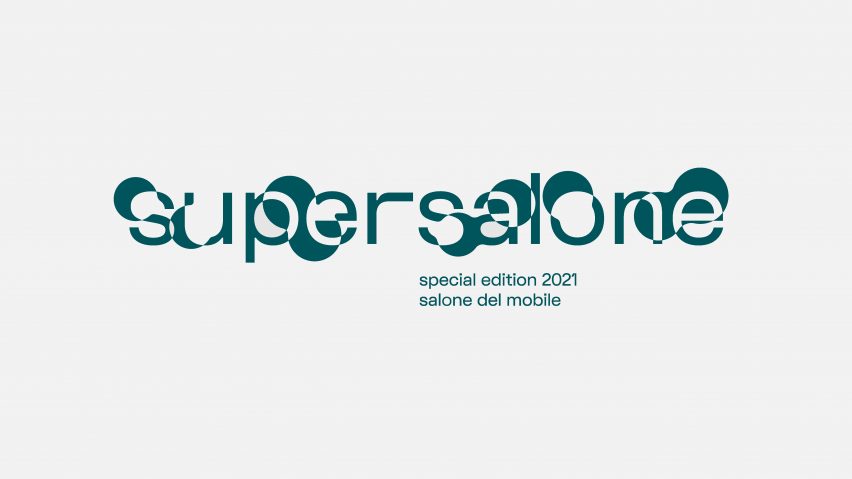
"I believe that this will be a way to take a risk in the right direction and demonstrate that the Salone is alive, that Milan is alive and that generally, our field is still dynamic and open to new conditions," he said.
The fair, taking place from 5 to 10 September, will be open to the public all week and visitors will be able to buy discounted products by scanning QR codes located next to products.
Products will be mounted on a series of parallel walls designed by architect Andrea Caputo, which will replace the traditional branded booths.
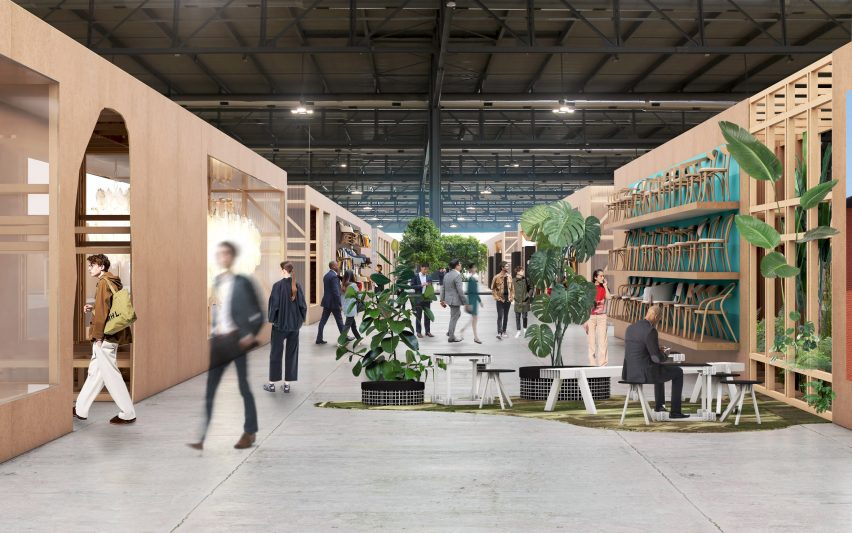
"I think it's such a beautiful and civil message in this situation," Boeri told Dezeen.
"It's giving the general public a possibility to see, and then buy online, an incredible variety of furniture products. I think it's something exceptional and I hope unmissable."
The Milanese architect was appointed curator of the furniture fair earlier this month following a tumultuous period that saw president Claudio Luti resign amid rumours that key brands would not participate in the fair.
With the 2020 fair cancelled due to the pandemic and the 2021 edition postponed from April, Boeri believes it is vital for Milan to show the world it is open for business, even if this year's event has fewer participants and visitors.
"We were both in Venice a few days ago [for the architecture biennale]," he said. "And how important was it for Venice to say: the biennale is still alive? It was amazing."
"It was so, so great to see the public; not simply students or architects or designers that are coming back to inhabit the biennale. For Milan, it's the same."
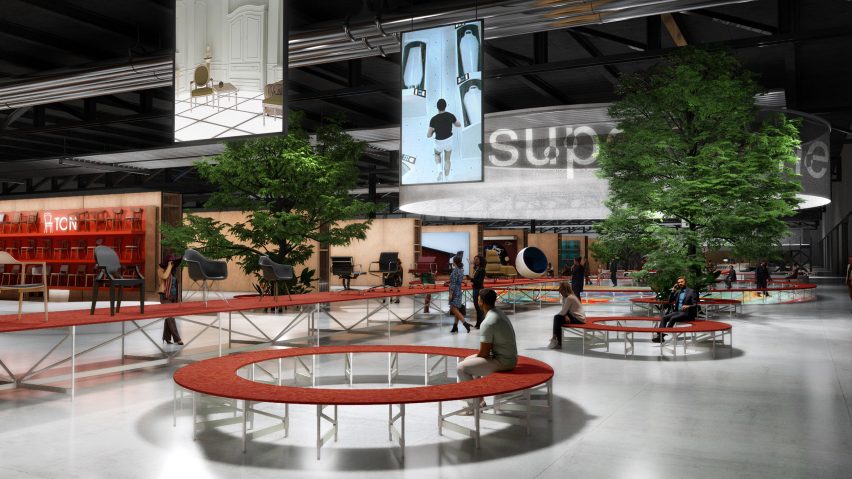
Boeri has developed a radical one-off concept for this year's fair that responds to both the anticipated fall in overseas trade visitors at this year's event and the rising consumer demand for home furnishings.
"I believe that is also very important to consider the desire of consumers to invest in the home at this moment in particular," said Boeri.
The traditional format, with brands building individual booths, will be scrapped.
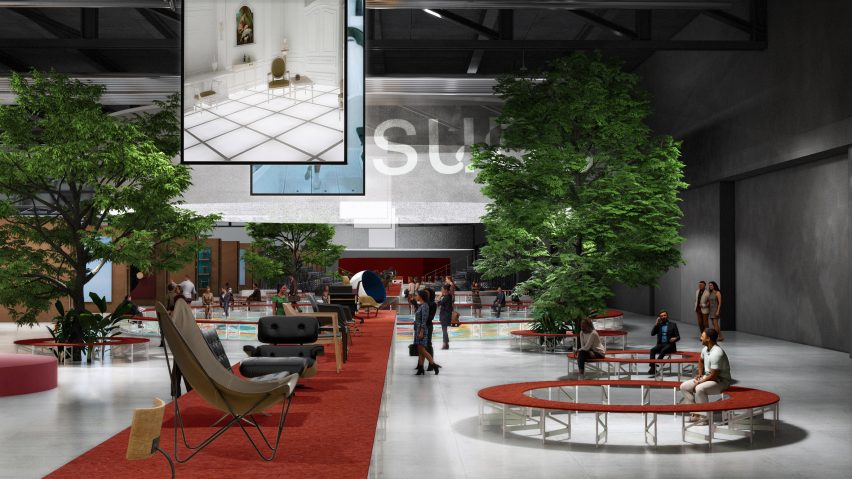
"We don't want stands," Boeri explained. "It's a completely different experience also for the visitor. You won't enter any pavilion where you have 30, 60 stands, each with an interior and an exterior."
"No, the pavilion will be one, with a very simple format inside. Every brand, every company will recognize their presence and identity in relation to this vertical wall."
Boeri is best known for his tree-covered "vertical forest" towers, including the Bosco Verticale residential tower in Milan. He is president of the Triennale di Milano design museum.
Here is an edited transcript of the interview with Boeri:
Marcus Fairs: Tell us about your plans for this year's Salone del Mobile.
Stefano Boeri: I've been asked to develop the concept for a special edition of the Salone. We all know that in April 2022, the Rho fairground will host the 60th edition of the Salone del Mobile.
And we know that we are in a post-pandemic phase and it's not so easy to imagine repeating the traditional format of the Salone del Mobile with 350,000 people going for five days – three for commercial visitors and two for the general public.
So after some days of thought and brainstorming with my colleagues and the team, we had the idea that we have to propose something radically different.
The idea is to imagine a Salone del Mobile that remains the largest platform in the world for furniture design, aimed directly at consumers by offering a reduced price for products.
I think it's such a beautiful and civil message in this situation. It's giving the general public a possibility to see, and then buy online, an incredible variety of furniture products. I think it's something exceptional and I hope unmissable.
So our idea is to bring together business-to-business, which is the traditional format of the Salone, with business-to-consumer. I believe that you have to put together the physical presence of the products and the agility of the digital sphere. That's probably the future.
I believe in the physical. I believe that physical presence is irreplaceable. It's something we still need. At the same time, we cannot avoid the agility and flexibility of the web.
Marcus Fairs: We were both in Venice last week for the architecture biennale. I think that proved that being face to face with people is so important. You can do so many things digitally but it's not the same as being in the same physical place with other people.
Stefano Boeri: Yes, there are so many implicit messages that are based on the physical presence of bodies that we cannot imagine being without it. So it's absolutely crucial to try to not lose this possibility.
Marcus Fairs: So tell me, what will the Salone del Mobile look like? What is your plan for the physical space? How will it work?
Stefano Boeri: Well, we are you know, we are now working with Andrea Caputo in Milan, with Lukas Wegwerth in Berlin, but also was already working with us at the Triennale, with Maria Cristina Didero, Anniina Koivu and also Marco Ferrari and Elisa Pasqual of Studio Folder.
Together we are imagining to propose a format, which is very simple. Basically, it's a wall, a continuous wall that will display the products.
We will also add another part in a pavilion that is more related to culture and entertainment. We will have probably part of the collection of the Compasso d'Oro [industrial design awards programme].
We are involving schools, international schools, who will show their products of their students because you know that for 18 months it was not possible. So we will coordinate the exposition of the furniture and the opportunity to buy online with the presence of other culture.
And also we are imagining a public programme with thinkers coming from around the world and talking about the post-pandemic condition and the delicate relationship between physical presences and online communication.
Marcus Fairs: So you'll have a commercial aspect, you'll have cultural aspects, you'll have talks, you'll bring lots of elements together for the first time for Salone del Mobile.
Stefano Boeri: Yeah, it's the first time. It's a challenge for sure. It's something that has never been done but I'm quite positive, I'm optimistic because I believe that this will be a way to take a risk in the right direction and demonstrate that the Salone is alive, that Milan is alive and that generally, our field is still dynamic and open to new conditions.
Marcus Fairs: Will the wall be a straight line down the middle of the pavilions at the fair? Or will it be like a snake?
Stefano Boeri: No, I will start with a very simple idea that Andrea Caputo is developing. It's a system of parallel walls with a double face that will create several different flexible conditions for the exposition of the products.
At the same time, what is important for us is that the story of stands is over. We don't want stands. We want to propose a very simple, flexible linear setup. And then it's up to the brands to decide how to manage this.
It's a completely different experience also for the visitor. You won't enter any pavilion where you have 30, 60 stands, each with an interior and an exterior. No, the pavilion will be one, with a very simple format inside. Every brand, every company will recognize their presence and identity in relation to this vertical wall.
Marcus Fairs: How will people buy the products? Will there be a QR code or some other technical innovation?
Stefano Boeri: Every product will have a QR code. With Lukas Wegworth we are also working with the idea of reusing everything. The panels will potentially be sold to the public or to other buyers. So everything there will be available via online commerce.
Marcus Fairs: Obviously this is a reaction to the extraordinary situation the world is in right now. But do you think that fairs will ever go back to how they were before? Or will they have to change?
Stefano Boeri: What we have done is related to this condition but it's also related to what was happening before the pandemic. So the necessity to develop e-commerce, trying not to lose the physical presence of the product: that was already here. Probably the pandemic has accelerated acceptance, in many other fields, of what was happening before. So it's an opportunity, it's an amazing opportunity.
Marcus Fairs: Salone del Mobile is the world's most important design fair. Milan is a city that's synonymous with design. But a few weeks ago it was looking as if the fair wouldn't happen. How important is it that something happens in September, even if it's not the same as previous years?
Stefano Boeri: We were both in Venice a few days ago [for the architecture biennale]. And how important was it for Venice to say: the biennale is still alive? It was amazing. It was so, so great to see the public; not simply students or architects or designers that are coming back to inhabit the biennale. For Milan, it's the same.
And in my opinion, my vision of Milan is also to be connected with the idea that the Salone del Mobile as a fair and the fuorisalone as a cultural [phenomenon] remain complimentary. We cannot separate them.
And the risk to Milan is to divide them or to put one after the other in sequence. Both are stupid solutions. What makes Milan strong is a combination of the two. One is [usually] strictly commercial where people go to buy and companies go to sell and the other is more cultural, more related with the experience of the city, which is amazing because it becomes a totally permeable and transparent city during those days. But the two are complementary.
Marcus Fairs: It's a radical idea is to invite the general public to the fair. There were always public days in the past but by then most of the professional visitors had left the city.
Stefano Boeri: For three, four days, it's [usually] only for buyers and companies and then there are two days where the public come. But it was more or less a fiesta or a party.
I don't think this is the right way. I believe that is also very important to consider the desire of consumers to invest in the home at this moment in particular. And it's also a way to answer this request now in a very civil and direct way.
So the companies will be there, the products will be available at special reduced prices and it's a very honest answer to the request of users who are investing in the improvement of their domestic environments.
Images are by Andrea Caputo.
Salone del Mobile and parallel fuorisalone events will take place from 5 to 10 September 2021 in Milan. See Dezeen Events Guide for an up-to-date list of architecture and design events taking place around the world.